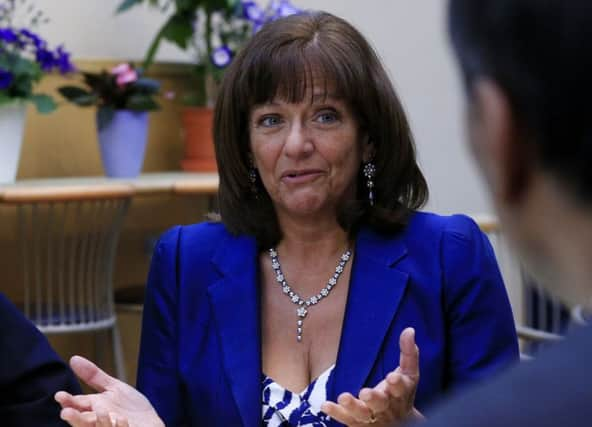Why a reckless addiction to borrowing could wreck the UK’s economy - Greg Wright


After every financial crash, we hear cries of “never again” and sober words promising stern action.
Sadly, many people have a weakness for buying on high-interest credit. This creates a time-bomb which explodes when we are least prepared to deal with the consequences.
Advertisement
Hide AdAdvertisement
Hide AdBaroness Ros Altmann, the former pensions minister, has produced a report which should make everyone working in financial services feel nervous.
Her investigation reveals that all age groups are getting deeper into debt and this could create a recipe for another economic catastrophe.
More people are being offered easy – but expensive – credit and there are no affordability checks, she argues. Baroness Altmann claims that ultra-low interest rates are not feeding through to individual consumers. The average adult is paying nearly £1,000 a year in interest as retailers increasingly use buy now, pay later tactics.
Worryingly, 40 per cent of working age people have under £100 in savings. The sudden loss of a job, or some other life-changing event, would leave them facing a bleak future.
Advertisement
Hide AdAdvertisement
Hide AdBaroness Altmann’s study concludes: “Despite high interest rates on credit card lending, the amount people are borrowing has risen significantly, being far higher now than 2009.
“More people are buying on credit as overall UK debt has risen sharply. Individuals are sinking deeper into debt and may struggle to repay if economic conditions deteriorate.
“Worryingly, outstanding balances on credit card lending have increased from £51.6bn in 2009 to £72.3bn in 2019, a rise of 40 per cent.”
She added: “This trend is likely to continue, especially as credit card companies are enticing people to take out more credit, offering unrequested increases in credit limits and few checks on their ability to repay.
Advertisement
Hide AdAdvertisement
Hide Ad“Retail firms are also encouraging more customers to borrow to pay for their purchases, with some firms making significant profits on this high cost credit.
“While employment levels and economic activity are quite healthy, this rising debt should be a cause for concern. Bad debts are already increasing and any economic downturn will leave more people struggling to pay their debts.”
When I first joined The Yorkshire Post’s business desk in 2004, I wrote a comment piece bemoaning the reckless levels of lending. At the time, many people thought I was scare-mongering. The economy seemed to be motoring along quite splendidly.
The events of 2008 and 2009 showed that I was right to question the wisdom of some of the decisions being taken by leading figures in financial services.
Advertisement
Hide AdAdvertisement
Hide AdConsumers and policymakers have short memories. Once the clouds lift, we are happy to believe that the days of boom and bust have gone forever.
Baroness Altmann’s report shows that the wise host knows when it is time to take away the punch bowl.
Since the crash, the Financial Conduct Authority has imposed price controls on payday lending and rent-to-own in a bid to ensure the economy stays on an even keel.
It says it is “continuing to monitor how the retail lending markets are serving their customers and will take action if we see further harm”.
Advertisement
Hide AdAdvertisement
Hide AdUK Finance also said that the banking and finance industry is committed to responsible lending and works with debt charities to ensure that they treat customers “sympathetically and positively” if they are worried about their borrowing.
Nevertheless, the opinions of Baroness Altmann, who is a fearless consumer champion, must carry some weight.
Millions of people are extremely vulnerable to the consequences of any economic shock. With Britain still facing potential disruption due to Brexit and wider economic headwinds, our politicians should study every sentence of this report. Our ancestors believed in the merits of putting something away for a rainy day. The UK’s culture of saving has withered away. We have developed a reckless and destructive addiction to borrowing.